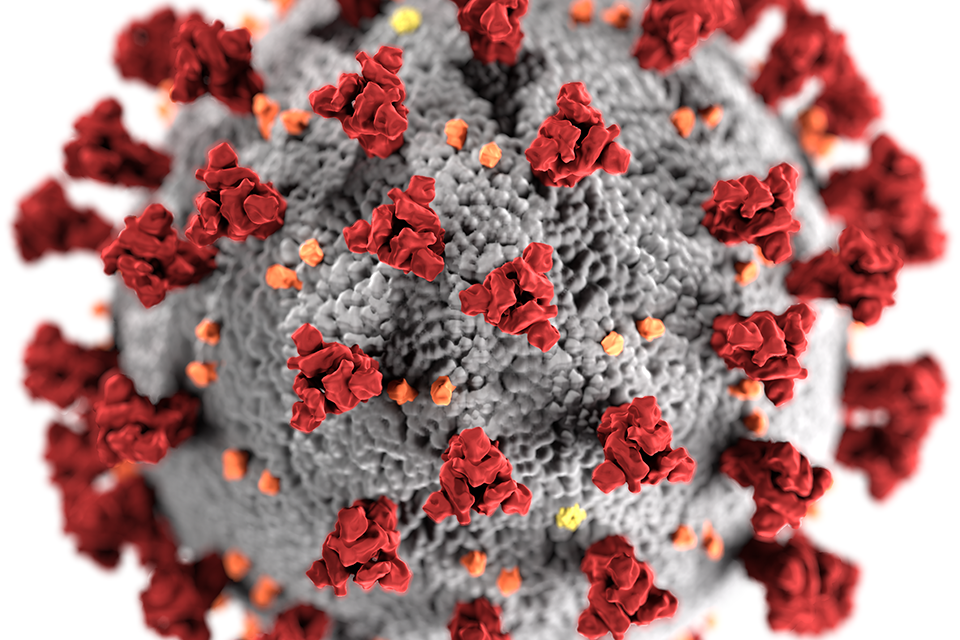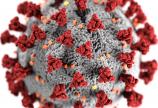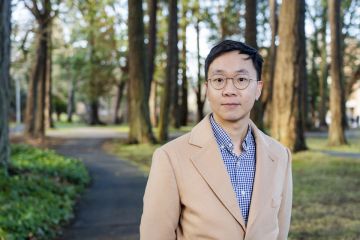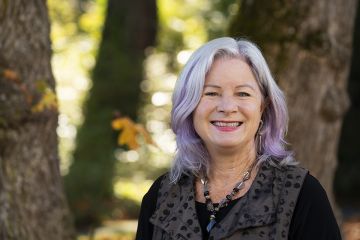Experts on social dimensions of COVID-19
Law, Humanities, Science, Libraries, Education, Social Sciences, Medical Sciences

The following University of Victoria experts are available to media to provide comment on the following aspects related to the global pandemic and its ongoing societal impacts.
Marina Bettaglio (Hispanic and Italian Studies) is an expert on the cultures of Italy and Spain, with an emphasis on gender and media studies. She can speak about COVID-19’s differential impact on society and culture for women and caregivers who live Spain and Italy. (Email at bettagli@uvic.ca)
Neilesh Bose (History) is a historian who specializes in the history of modern South Asia. He can speak to vaccine availability in India and the Global South, the global implications of the pandemic and the general history of vaccines across the globe. (Email at nbose@uvic.ca)
Paul Bramadat (Centre for Studies in Religion and Society / History) is a religious studies scholar and has served as director of the Centre for Studies in Religion and Society at UVic for more than a dozen years. He can speak to the social dimensions of COVID-19 in the context of vaccine hesitancy, religious concerns, pluralism and democracy. Bramadat—an expert on the intersections between secularism, religious radicalization, post-colonialism and religious identity in contemporary Canada—was one of several scholars at an international colloquium in Australia leading discussions on science, spirituality, vaccine hesitancy, conspiracy theories, QAnon and far-right extremism. (Email at bramadat@uvic.ca)
Martin Bunton (History) is an expert in modern Middle Eastern history. He can speak about how the Middle East in general has been affected by the pandemic, the impact on populations and how governments are responding. (Email at mbunton@uvic.ca)
Catherine Costigan (Psychology) is an expert in working with vulnerable families experiencing mental health challenges. She explores family relationships (e.g., parent-child, co-parents, siblings) in the context of stress and change. She can comment on how the evolving pandemic may impact the mental health of families and how individuals can address anxiety about vaccines and the eventual return to “normal” life. (Email at costigan@uvic.ca)
Rob Gillezeau (Economics) is an economist with expertise in public policy. He can speak about federal, provincial and municipal economic policies related to COVID-19 bridging supports for individuals, firms and non-profits, as well as government fiscal approaches. He can also speak to the broader economic shock of the crisis and appropriate budgetary policies as the virus is contained. (Email at gillezr@uvic.ca)
Lisa Goddard (Libraries) is the associate university librarian for advanced research services at UVic and an expert in how digital commons and GLAM (galleries, libraries, archives and museums) spaces are handling access during the COVID-19 pandemic, as well as the crucial role of librarians in supporting the research enterprise, including the development and management of research and specialized collections. (Email at lgoddard@uvic.ca)
Frederick Grouzet (Psychology) is a social psychologist who can speak about messaging regarding vaccination, the psychology of hope and planning, and the potential long-term effects of COVID-19. In light of the potential return to a new normal, he can also provide expertise on how people adjust to new situations and life transitions. (Email at fgrouzet@uvic.ca)
Mitchell Hammond (History) is a historian who specializes in the history of disease and medicine in early modern Europe and the modern world. He can speak about the history of vaccination and other historical dimensions of pandemics and epidemics, including insights from his book Epidemics and the Modern World. (Email at mlewham@uvic.ca)
Olav Krigolson (Neuroscience) is an expert in living in isolation (having completed an astronaut-simulation research project in the HI-SEAS Mars Habitat in Hawai’i), decision-making and statistics. In the context of COVID-19, he can discuss what happens to the brain during isolation, and how stress and isolation affect decision-making and performance. (Email at krigolson@uvic.ca)
Victor V. Ramraj (Law) is the director and law chair with UVic’s Centre for Asia-Pacific Initiatives. He and a team of scholars have compiled an account of the issues that emerged from the Asian context in the early days of the spread of COVID-19. The new anthology was compiled within months and published in December 2020, less than a year after the first reported case in Canada. (Email at ramraj@uvic.ca)
Ryan Rhodes (Exercise Science) is an expert in the psychology of physical activity and sedentary behavior. He can discuss physical activity and sedentary screen time as it relates to pandemic lockdowns and a hopeful return to normal. He is available mornings from March 16 to 18. (Email at rhodes@uvic.ca)
Jillian Roberts (Educational Psychology) is an expert in child psychology. She can discuss how parents and other adults can support children and their worries during times of uncertainty. She is available from 8:30 to 10 a.m. daily. (Email at jjrobert@uvic.ca)
Scott Watson (Political Science) is an expert in international relations, security and migration policy. He can speak about how societies deal with disasters and crises, including how the international system contributes to producing and resolving them. (Email at sdwatson@uvic.ca)
-- 30 --
Photos
Media contacts
Suzanne Ahearne (University Communications + Marketing) at 250-721-6139 or sahearne@uvic.ca
Tara Sharpe (University Communications + Marketing) at tksharpe@uvic.ca
In this story
Keywords: COVID, pandemic, health, psychology, research, government, business, economy, health care, mental health





